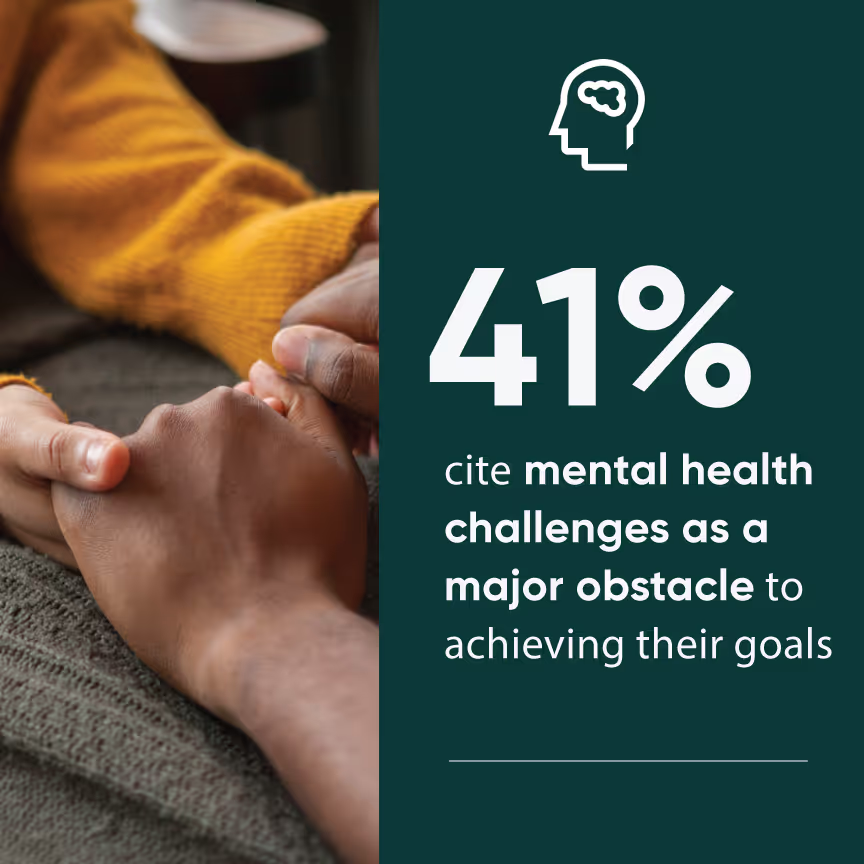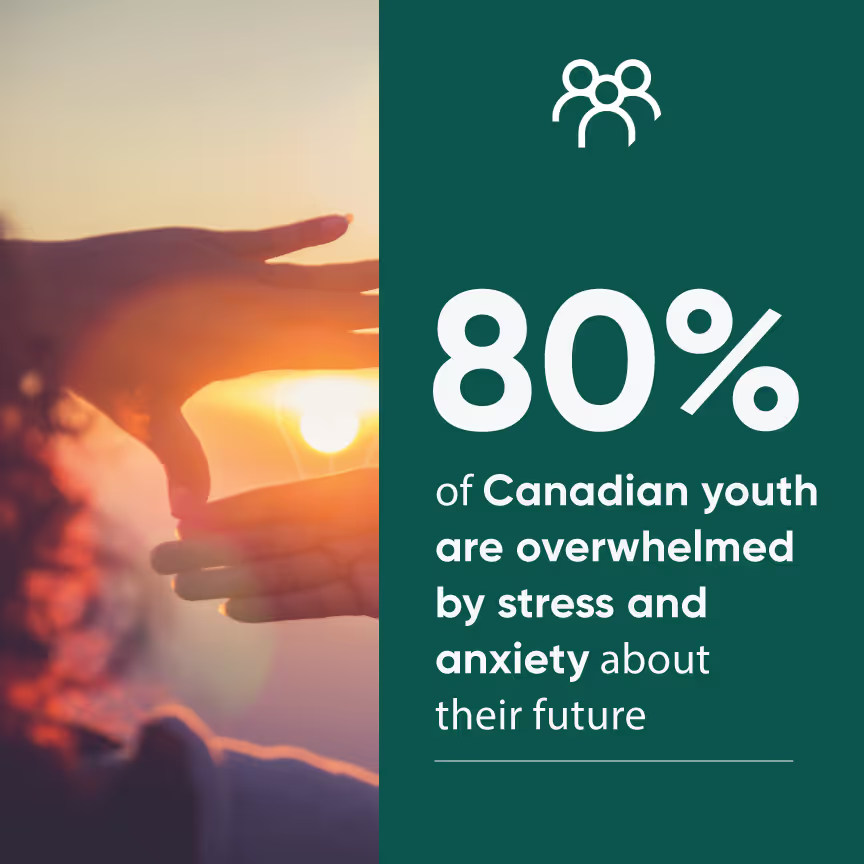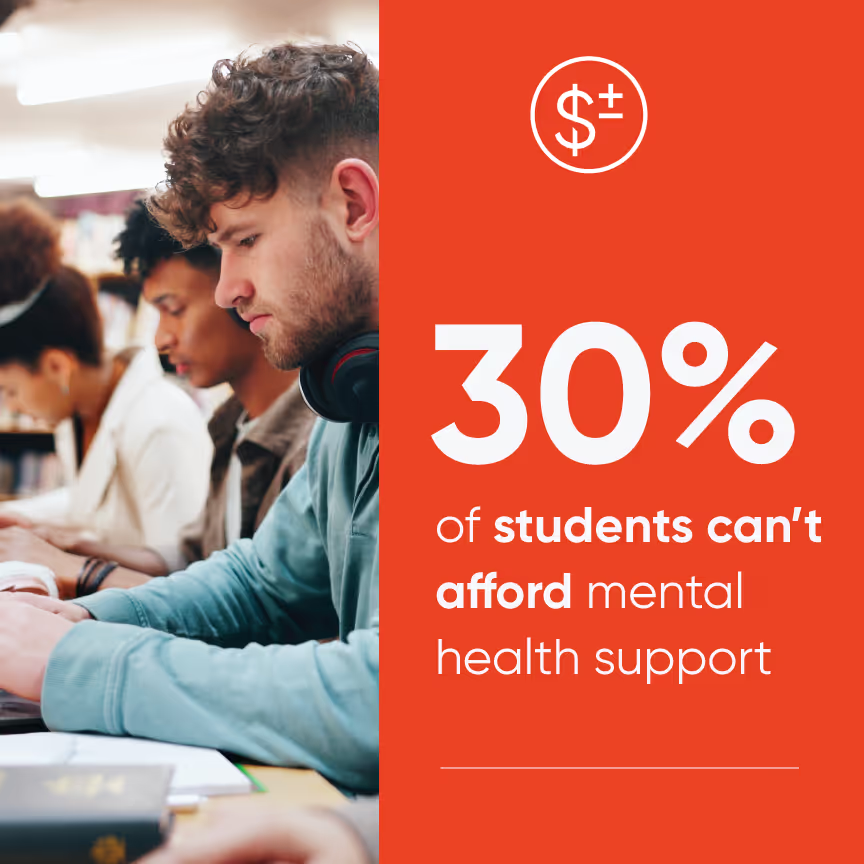Welcome to the Youth Mental Health Data Hub
The home of Canada’s most comprehensive resource to aggregate data on the diverse mental health needs of youth.
Developed in partnership between Mental Health Research Canada (MHRC) and GreenShield, the Youth Mental Health Data Hub aims to bring together reliable information from across the country and make it available in one place. The Hub features an interactive data dashboard that can be used to explore key trends in mental health indicators, critical gaps, and barriers to support for young Canadians.




Reliable Mental Health Resources
Youth across Canada face different mental health challenges, shaped by many demographic and socioeconomic factors. Organizations across the country are coming together to support youth through different initiatives. Learn more through downloadable resources and by visiting our community partners.
A Generation Under Pressure
Our new survey, conducted in partnership with MHRC, reveals a troubling reality: youth are overwhelmed by stress and anxiety about their future. Economic pressures – including job insecurity and the rising cost of living – are key drivers, particularly among racialized and 2SLGBTQI+ youth, underscoring the urgent need for inclusive and accessible support.
Introducing The Youth Mental Health Ecosystem
Over the past year, the ecosystem was developed through consultations with community organizations, youth roundtables, and analysis of anonymized data from GreenShield’s post-secondary plan members.
In collaboration with youth mental health organizations, the ecosystem reaches young people where they are, delivering support and resources tailored to their values, identities, and lived experiences.
Dive into the Data
Explore a comprehensive collection on mental health indicators with our new user-friendly dashboard. Providing an overview of young peoples’ diverse experiences with mental health nationwide, visitors can dive deep into different areas of youth mental health across many different factors. Making reliable data accessible with the goal of understanding these experiences is the first step to improving care and outcomes for young Canadians.
Discover evidence-based insights about youth mental health using the data dashboard, and download your insights to share with your network.
The Data Dashboard
The information featured in the data below represents over 40,000 Canadians who answered questions about their mental health in an online survey.
Additional Research
Below are links to additional resources related to youth mental health from our partners.


Jack.org
Jack.org's Insights & Data Hub is an anonymized and aggregated data set collected from Jack.org’s national youth network, ages 13 to 24.


Canadian Institute for Health Information (CIHI)
CIHI regularly releases data and information on children and youth (ages 5-24) use of publicly funded mental health services, such as emergency department visits, hospital stays, medication use and physician visits. This information helps to guide decisions on clinical care, system management and policy.


Integrated Youth Services (IYS)
The IYS model combines health, wellness and social services in one place that is co-created with youth from ages 12 to 25 years old. This can include help with mental health, substance use, physical and sexual health, making friends, learning important skills and finding assistance with school and jobs.
Access data of youth using IYS supports through provincial and territorial networks can be viewed here.
Stories that matter
Read firsthand accounts from youth whose experiences shape this data.
“It was my mother – she said I needed to talk to someone. My moods were impacting my relationships with other people, making it hard to be around me.”

Female, 18 years old.
British Columbia
“It was a guidance counsellor at school. I told them what was happening, and they made an appointment for me to see a social worker. I could see them in the school, during the day, so it was very easy.”
Female, 20 years old
Ontario
“When I was young, my teacher found out I was self-harming. She sent me to the school guidance counsellor who called my parents. Everything went through my parents. I didn’t even understand what was going on. They just told me to talk to this person.”
Female, 18 years old
Quebec
“I was playing hockey for a US university. It was very hard, very stressful. The team has a sports psychologist, and we were strongly encouraged to see them. After hearing about it a few times, I decided to try it out.”
Male, 25 years old.
British Columbia
“It is bad for your mental health. It is made so that you will compare yourself to others and you never measure up. It is made to make you feel bad about yourself.”

Female, 18 years old
Quebec
“It was my mother – she said I needed to talk to someone. My moods were impacting my relationships with other people, making it hard to be around me.”

Female, 18 years old.
British Columbia
“It was a guidance counsellor at school. I told them what was happening, and they made an appointment for me to see a social worker. I could see them in the school, during the day, so it was very easy.”
Female, 20 years old
Ontario
“It is bad for your mental health. It is made so that you will compare yourself to others and you never measure up. It is made to make you feel bad about yourself.”
Female, 18 years old
Quebec
“I was playing hockey for a US university. It was very hard, very stressful. The team has a sports psychologist, and we were strongly encouraged to see them. After hearing about it a few times, I decided to try it out.”

Male, 25 years old.
British Columbia
FAQs
What is the Youth Mental Health Data Hub?
The Youth Mental Health Data Hub is a first-of-its-kind data tool that provides an in-depth look at the mental health challenges facing diverse youth across Canada. It breaks down key trends and insights to help inform better, more tailored mental health solutions.
Who is this data for?
This data is available to everyone.
It’s designed for policymakers, mental health professionals, researchers, journalists, and organizations working to improve youth mental health. It ensures decision-makers have the insights needed to create targeted, effective support systems.
It helps partners like GreenShield and other advocates develop data-driven solutions that ensure no youth is left behind.
How is the data collected?
Each of our national data collections includes a sample of approximately 4,000 participants aged 16 and older, with additional provincial and other upsamples depending on partner engagement. The data is gathered online through Leger (Leger Opinion). Participants are unaware of the survey's subject beforehand (blind survey). The sample is controlled at intake for age, gender, and region, reducing the need for weighting to ensure it is representative of the national population.
We also partner with Pollara Strategic Insights, an accredited Gold Seal member of the Canadian Research Insights Council (CRIC) for data collection and analysis. Pollara adheres to the CRIC Canadian Code of Market, Opinion, and Social Research and Data Analytics, as well as the CRIC Public Opinion Research Standards and Disclosure Requirements. For more information on the ethical standards and frameworks we follow, visit CRIC Standards.
How often is the Youth Mental Health Data Hub updated?
The data is updated quarterly, with the survey initially launching in 2022.
Can I access this dataset myself?
Yes, contact info@mhrc.ca for more information about becoming an MHRC data sharing partner.
Get in Touch
Do you have questions or feedback about your experience using the dataset?
.png)




.avif)




.avif)


